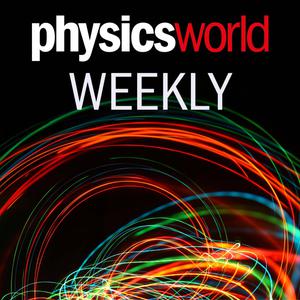
Physics World Weekly Podcast
Physics World
Physics World Weekly Podcast
- 31 minutes 55 secondsEnvironmental sustainability: exploring the challenges for the medical physics community
This episode of the Physics World Weekly podcast explores how the medical physics community is embracing environmental sustainability. Our guests are the medical physicists Rob Chuter of the Christie NHS Foundation Trust in the UK and Kari Tanderup of Aarhus University in Denmark.
They chat with Physics World’s Tami Freeman about the environmental impact of healthcare provision – and how the community can reduce its carbon footprint without having negative impacts on health outcomes.
- This podcast was created in collaboration with IPEM, the Institute of Physics and Engineering in Medicine. IPEM owns the journal Physics in Medicine & Biology.
25 April 2024, 1:35 pm - 29 minutes 53 secondsPurpose-Led Publishing: Antonia Seymour outlines the role of not-for-profit publishers
Purpose-Led Publishing is a coalition of three not-for-profit scientific publishers: IOP Publishing, AIP Publishing and the American Physical Society.
The coalition launched earlier this year, and its members have promised that they will continue to reinvest 100% of their funds back into science. Members have also pledged to “publish only the content that genuinely adds to scientific knowledge,” and have also promised to “put research integrity ahead of profit”.
This episode of the Physics World Weekly podcast features an interview with Antonia Seymour, who is chief executive of IOP Publishing. She played an important role in the creation of Purpose-Led Publishing and argues that scientists, science and society all benefit when physicists publish in not-for-profit journals.
Audio engagement
Also in this episode, we meet Corragh-May White who is surveying podcast listeners to try to work out the best ways for using audio to get people engaged in science. She is doing a master’s degree in science communication at the University of the West of England and is making short science podcasts in different styles for her subjects to listen to.
If you would like to take part in the 20-minute survey, you can contact White at [email protected] for more information.
18 April 2024, 3:06 pm - 26 minutes 53 secondsStatistical physics provides powerful insights into the living world
This episode of the Physics World Weekly podcast features an interview with Tannie Liverpool, who uses statistical physics to explore outstanding questions in biology. Based at the UK’s University of Bristol, where he is professor of theoretical physics, Liverpool explains how complex biological behaviours can be described at a very fundamental level using statistical physics.
He chats with Physics World’s Katherine Skipper about own research into cells and tissues, including the mathematics of wound healing. Liverpool also explains how physicists, materials scientists and mathematicians working in other fields are being inspired by the statistical physics of life.
Celebrating all things quantum
This Sunday, 14 April is World Quantum Day and in the podcast we take a brief look at how Physics World and IOP Publishing are celebrating. You can find out more at this IOPscience Quantum Science Subject Collection and on Physics World’s quantum page.
Looking further into the future, on 2 July the first instalment of Physics World Live will look at the burgeoning field of quantum sensors. This live online panel debate will feature leading experts in quantum sensors. Register here to take part and put your questions to the panellists.
11 April 2024, 2:59 pm - 29 minutes 28 secondsScience centres inspire scientific literacy and diversity in STEM
In this episode of the Physics World Weekly podcast I am in conversation with Frederic Bertley – who is president and CEO of COSI (Center of Science and Industry) in Columbus, Ohio. Bertley explains how science centres like COSI can boost scientific literacy and talks about the Color of Science initiative, which he founded to highlight and promote diversity in science, technology, engineering, arts and mathematics.
Bertley also talks about his life-long love of ice hockey and how sports can be used to get people interested in science. Indeed, he explains in detail the physics of baseball pitches and the hockey slapshot.
He also talks about how COSI is encouraging Ohioans to observe and understand the total eclipse of the Sun, which will occur in a significant portion of the state on 8 April. He explains how COSI will engage with the public in venues as diverse as libraries and bars to share the science surrounding the eclipse.
4 April 2024, 1:58 pm - 35 minutes 59 secondsSuperfluid helium: the quantum curiosity behind huge experiments like the LHC
The effects of quantum mechanics are all around us, but the quantum properties of matter are generally only apparent at the microscopic level. Superfluidity is an exception, and some of its bizarre characteristics can be seen with the naked eye. What is more, superfluid helium II has found several important applications in science and technology – and is used multi-tonne quantities today at facilities like the Large Hadron Collider.
My guest in this episode of the Physics World Weekly podcast is John Weisend who is senior accelerator engineer at the European Spallation Source and adjunct professor at Lund University in Sweden. He is a specialist in cryogenic engineering, and has written the book Superfluid: How a Quantum Fluid Revolutionized Modern Science.
We chat about the physics behind this amazing substance and how it is used in some of biggest physics experiments on the planet.
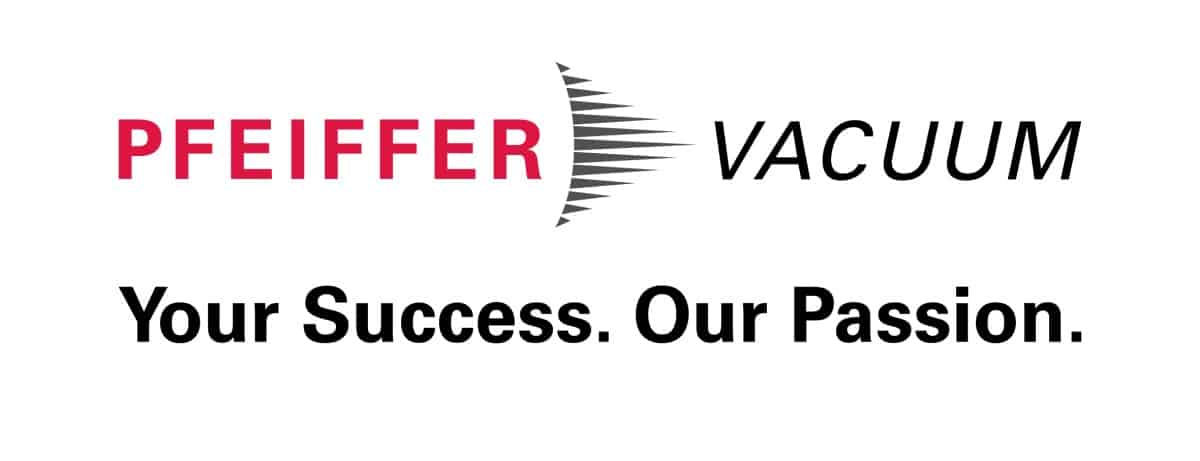
This episode is sponsored by Pfeiffer Vacuum.
Pfeiffer Vacuum provides all types of vacuum equipment, including hybrid and magnetically-levitated turbopumps, leak detectors and analysis equipment, as well as vacuum chambers and systems. You can explore all of its products on the Pfeiffer Vacuum website.
28 March 2024, 2:44 pm - 27 minutes 5 secondsFrugal approach to computer modelling can reduce carbon emissions
As computing power continues to grow, theoretical physicists have been able to do larger and more complicated simulations. Running these models consumes a growing amount of energy, and for the time being, this results in more greenhouse-gas emissions that contribute to climate change. Indeed, doing an intensive supercomputer simulation can result in emissions that are on par with taking a long-haul flight.
In this episode of the Physics World Weekly podcast, Alejandro Gaita and Gerliz Gutiérrez of Spain’s University of Valencia tell Physics World’s Margaret Harris how the physics community can reduce its computing-related carbon emissions.
Gaita and Gutiérrez are theoretical materials physicists and they argue that scientists should take a frugal approach to computer modelling, which can achieve scientifically relevant results while minimizing energy consumption.
- Gaita and Gutiérrez describe practical examples of frugal computing in this article, which was co-written by Valencia’s Aman Ullah: “A call for frugal modelling: two case studies involving molecular spin dynamics”.
21 March 2024, 3:50 pm - 34 minutes 59 secondsKeith Burnett: IOP president says it is our duty to make physics more inclusive
This episode of the Physics World Weekly podcast features a wide ranging interview with Keith Burnett, who is president of the Institute of Physics (IOP).
The IOP is the professional body and learned society for physics in the UK and Ireland. It represents 21,000 members and a key goal of the institute is to make physics accessible to people from all backgrounds.
Burnett, who is halfway through his two-year term in office, was knighted in 2013 for his services to science and higher education. He has served as vice chancellor of the University of Sheffield and is also an advocate for high-quality vocational education and technician training.
He talks to Physics World’s Matin Durrani about the challenges facing universities; physicists as entrepreneurs; supporting early-career physicists; and the need for the IOP to continue its drive to boost the diversity of the physics community.
- The Institute of Physics owns IOP Publishing, which brings you Physics World
Image courtesy of Hannah Veale
15 March 2024, 12:50 pm - 17 minutes 2 secondsTackling climate change while improving human wellbeing
Environmental challenges like climate change are forcing us to rethink how we live in cities. This provides humanity with an important opportunity to develop new policies that also improve the overall wellbeing of urban dwellers.
Our guest in this episode of Physics World Weekly podcast is Radhika Khosla – who is an urban climatologist based at the Oxford Smith School of Enterprise and the Environment at the UK’s University of Oxford. She points out that extreme heat is proving to be the most deadly consequence of climate change and talks about the need to develop and implement cooling technologies that do not boost greenhouse gas emissions.
Khosla explains why the rapid urbanization of India offers opportunities to develop environmental policies that improve people’s lives. She also talks about her plans for the journal Environmental Research Letters, where she has recently become editor-in-chief.
7 March 2024, 3:46 pm - 28 minutes 39 secondsRadiology societies call for critical evaluation of AI, building the UK’s quantum workforce
Artificial intelligence (AI) shows great promise for use in radiology, which involves the use of medical imaging to diagnose and treat disease. Integrating AI tools into radiology could advance the diagnosis, quantification and management of multiple medical conditions. However, it is essential to acknowledge that some AI products may be add little value or even have potential to cause harm.
To ensure that AI is used appropriately, five radiology societies in the US, Canada, Europe, Australia and New Zealand have come together to publish a joint statement on the development and use of AI tools in radiology. This episode of the Physics World Weekly podcast features an interview with one of the authors of this paper. Bibb Allen is Chief Medical Officer for the American College of Radiology Data Science Institute, and a diagnostic radiologist at Grandview Medical Center in Birmingham, Alabama.
Also in this episode, Physics World’s Katherine Skipper reports back from a workshop that looked at how the UK could boost its quantum workforce.
29 February 2024, 2:58 pm - 39 minutes 43 secondsLooking to the future of US particle physics: P5 member Abigail Vieregg is our guest
Late last year the Particle Physics Project Prioritization Panel ( P5) released a report that looks to the future of particle physics in the United States. The report is called Exploring the Quantum Universe and one of its authors, Abigail Vieregg, is our guest in this episode of the Physics World Weekly podcast.
Vieregg is an astrophysicist and cosmologist at the University of Chicago and she talks about future experiments that P5 has recommended including a muon collider that could search for new physics on a much smaller footprint than conventional colliders. Vieregg also chats about the proposed CMB-S4 next-generation cosmic microwave background observatory, which ties-in with her research on the polarization of the cosmic microwave background.
Vieregg also describes the buzz surrounding P5 meetings as the panel was presented with a wealth of ideas from the particle-physics community. She says that she is proud of the positive response P5 has garnered from physicists.
22 February 2024, 2:55 pm - 25 minutes 8 secondsBionic jellyfish and more efficient windfarms: a conversation with John Dabiri
Jellyfish have a very simple, yet very effective way of swimming – and this has attracted the attention of the aeronautics engineer John Dabiri at the California Institute of Technology. In this episode of the Physics World Weekly podcast, Dabiri talks about his work on the artificial enhancement of jellyfish. He also explains how fluid dynamics can be used to boost the efficiency of windfarms, and explores the possibility that swimming organisms play important role in the mixing of the oceans.
Dabiri and Caltech’s Simon Anuszczyk describe their bionic jellyfish in a paper that has been accepted for publication in the journal Bioinspiration & Biomimetics. The accepted manuscript can be read here: “Electromechanical enhancement of live jellyfish for ocean exploration”.
15 February 2024, 4:09 pm - More Episodes? Get the App
Your feedback is valuable to us. Should you encounter any bugs, glitches, lack of functionality or other problems, please email us on [email protected] or join Moon.FM Telegram Group where you can talk directly to the dev team who are happy to answer any queries.
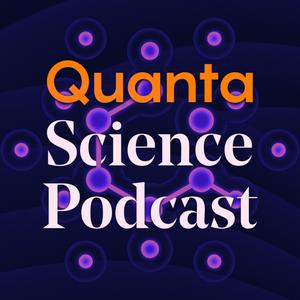 Quanta Science Podcast
Quanta Science Podcast
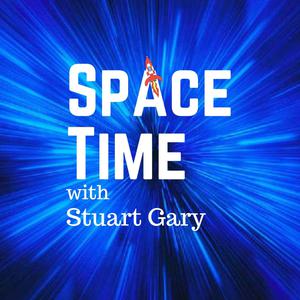 SpaceTime with Stuart Gary
SpaceTime with Stuart Gary
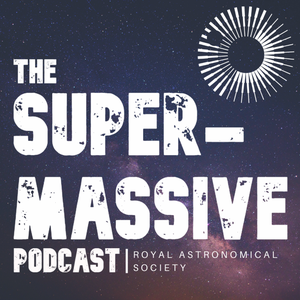 The Supermassive Podcast
The Supermassive Podcast
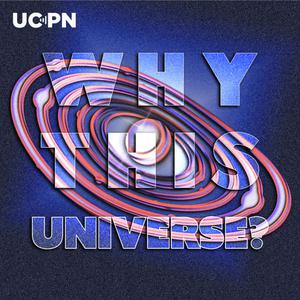 Why This Universe?
Why This Universe?
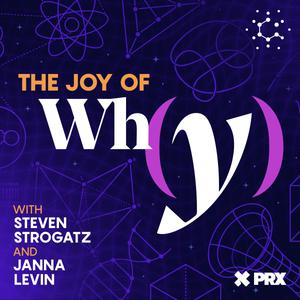 The Joy of Why
The Joy of Why
 Ask a Spaceman!
Ask a Spaceman!